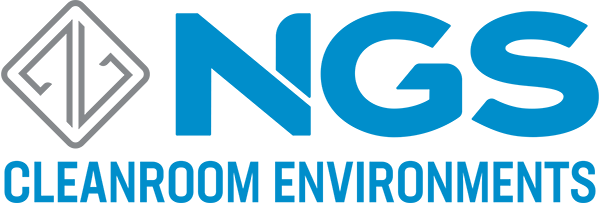The measurement, monitoring and control of contamination in Cleanroom is essential to the industries that rely on Cleanrooms to control and minimise contamination in a workplace. The standards used to classify levels of contamination and to define the best practices for measurement and control of contamination therefore are invaluable to cleanroom suppliers and to their clients.
The national and international groups responsible for the development and control of the standards related to the measurement and control of contamination in Ireland are outlined in this article.
Irish Cleanroom Society (ICS)
The Cleanroom community in Ireland is supported by the Irish Cleanroom Society (ICS). The ICS is a not for profit organisation and is the Irish representative member to the International Confederation of Contamination Control Societies (ICCCS).
International Confederation of Contamination Control Societies (ICCCS)
The ICCCS is an international community of national representatives (societies) on cleanrooms and contamination control. The ICCCS accepts only one society from each country as a member, to represent their country. Presently there are 17 members.
The member for Ireland is the Irish Cleanroom Society (ICS) and the member for Scotland is Scottish Society for Contamination Control (S2C2).
The purpose of the ICCCS is to:
- coordinate international exchange of contamination control knowledge
- coordinate and promote international contamination control standardization
- assist with the elimination of technical barriers to trade
- recruit new societies and continually develop the ICCCS community
ICCCS has a formal liaison status to ISO Technical Committee 209 – which develops the world standards for Cleanrooms and associated controlled environments and to CEN Technical Committee 243 – which develops the European standards for Cleanroom Technology. ICCCS therefore has a formal vote on new work items for these ISO and CEN groups, is involved in discussions on existing standards and ICCCS Standing Committee members are involved in the technical committees and work groups for the development of ISO and CEN standards.
ISO Technical Committee 209
ISO/TC 209 Cleanrooms and associated controlled environments is responsible for the standardization of equipment, facilities, and operational methods for cleanrooms and associated controlled environments. This includes procedural limits, operational limits and testing procedures to achieve desired attributes to minimize micro contamination. Topics of interest are non-viable particles, viable particles, surface cleanliness, room temperature and humidity profiles, airflow patterns and velocities, room vibration profiles, room light levels, room infiltration leakage, personnel procedures, personnel cleanroom clothing, equipment preparation, and any other topics related to optimizing cleanroom operations.
A list of the Standards and projects under the direct responsibility of ISO/TC 209 Secretariat is available on the ISO website. Notice that the list shows published standards as well as standards that are under development.
CEN Technical Committee 243
The CEN/TC 243 technical body is responsible for the Standardization and classification of controlled environment spaces and fixing of criteria for controlling contamination in such spaces. Guidance on the design, taking into account sources of contamination; air, liquid, materials, equipment and personnel as well as their interactions. Guidance on biocontamination control is included, as are provisions for the control of molecular contamination. Methods of aseptic processing are excluded, as are methods of cleaning and disinfection except with particular reference to inert surfaces in cleanrooms. The field of competence of the committee embraces all aspects of cleanroom technology, including the classification of controlled environments, the achievement of contamination control in such environments and the design, construction and operation of cleanroom technology.
A list of the standards and work programme for CEN Technical Committee 243 is available on the CEN website.
